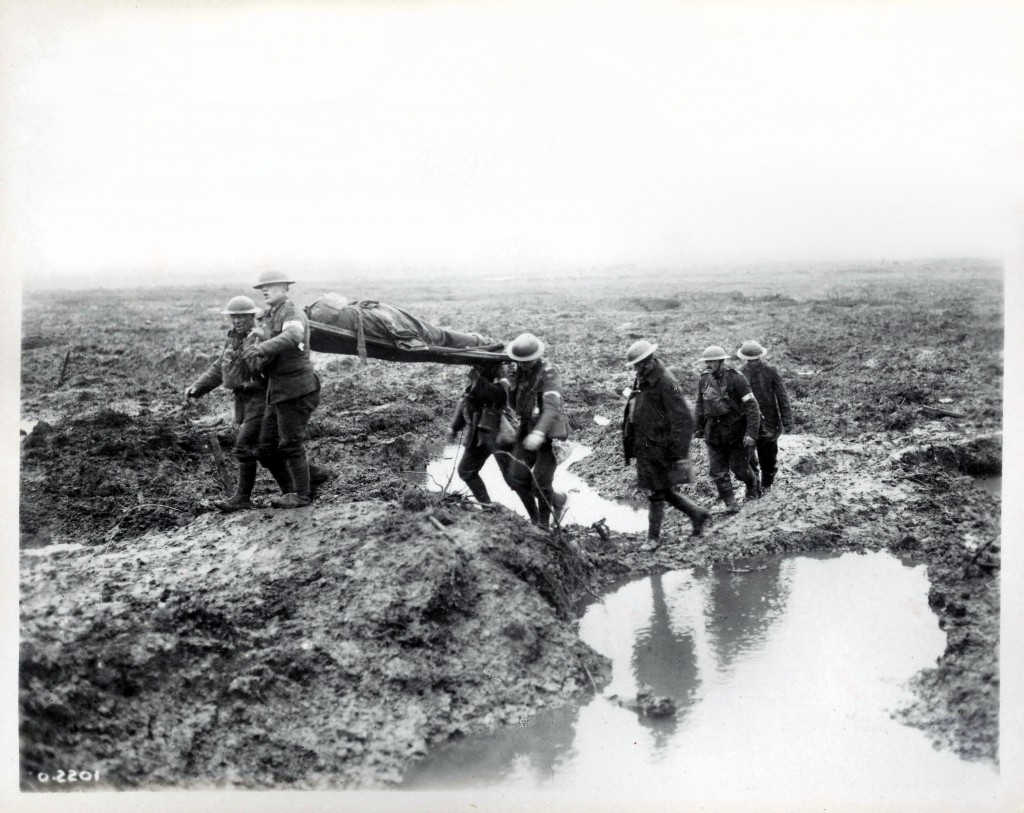 Today, 31 July 2017, marks the 100th anniversary of the start of the Third Battle of Ypres, also known as Passchendaele. This morning descendants, dignitaries, and royalty gathered to mark the occasion of a battle that lasted 103 days and while the exact number of total casualties is still debated we can surmise it was over 400,000 (see G. Sheffield, and R. Prior & T. Wilson).
Today, 31 July 2017, marks the 100th anniversary of the start of the Third Battle of Ypres, also known as Passchendaele. This morning descendants, dignitaries, and royalty gathered to mark the occasion of a battle that lasted 103 days and while the exact number of total casualties is still debated we can surmise it was over 400,000 (see G. Sheffield, and R. Prior & T. Wilson).
Reinach was at Passchendaele, fighting as a soldier in the field artillery of 185th Regiment. It would be his last battle, he died 6 days after it ended. There are no letters from him during this time to Husserl or his best friends, the Conrads, so we don’t have a record of his experience or feelings from this battle. However, the one glimpse we do have into his state of mind comes when we look at the philosophy he was writing during Passchendaele: specifically, rough notes under the heading Bruchstück einer religionsphilosophischen Ausführung (Fragment of a Treatise on the Philosophy of Religion) titled Das Absolute (the Absolute), Struktur des Erlebnisses (Structure of Experience), and Skeptische Erwägungen (Skeptical Considerations) (Sept/October 1917). I will also note that he expressed a desire to lecture on this topic, the philosophy of religion, when he returned from the war. In summary, Reinach explores and describes phenomenologically the feeling and the knowing of the presence of God, what the structure of that experience might resemble, and how to respond to those who doubt the validity of the experience.
I will return to these notes in greater detail in a later blog post, since I am working with them at the moment for an article on Reinach and Gerda Walther, but I have to admit that I have wondered if he possibly had a mystical experience on the field (there are plenty of ghost stories and uncanny experiences documented by soldiers), or if the horrors and brutality of WWI (and particularly the blood-and-mud of Passchendaele) were weighing very heavily on his mind. In 1916 he converted to Protestantism with his wife, Anna, so considerations about God and religion were already active in his thinking. But the timing of these notes is very telling, I think. The tone of these notes is also very special in that they are very phenomenologically poetic and deeply moving. Reinach is, as usual, the skilled phenomenologist in his descriptions, but there’s something more going on. When I read them, I see a man who is searching for joy and beauty in a world that is exploding in front of him, and, at the same time, rekindling the creative spark of a profoundly meaningful life endeavour that he had before enlistment — doing phenomenology. He once told Conrad-Martius that he believed phenomenology was what the new Germany and the new Europe needed after the war ended (letter dated 10 September 1915). Phenomenology was a saving grace for him, and for the continent. In these final fragments it is clear that ‘Reinach the soldier’ would always and forever be ‘Reinach the realist phenomenologist’.
To begin to understand what Reinach witnessed and participated in, I would like to include in this post some videos. As you watch, think to yourself what it would have been like to be an academic like Reinach, or many of his Munich and Göttingen colleagues who enlisted, fighting in a war as a soldier far away from your desk and classroom. What impact would this have on your philosophy?